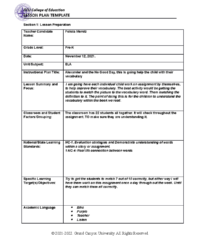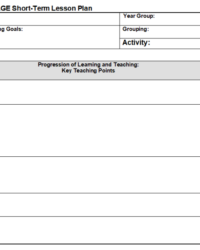Embarking on the journey of maths mastery in your classroom can feel like a grand adventure. It’s all about ensuring every student achieves a deep, secure, and adaptable understanding of mathematical concepts, rather than just rushing through topics. This approach fosters a genuine love for numbers and problem-solving, building confidence brick by brick. Instead of merely memorizing formulas, students learn to connect ideas, reason mathematically, and apply their knowledge in varied contexts. It’s a profound shift from traditional teaching, prioritizing depth over breadth, and making sure no one gets left behind.
To truly embrace this pedagogical philosophy, a well-structured approach to lesson planning becomes invaluable. It helps you articulate clear learning objectives, design engaging activities, and anticipate potential misconceptions, ensuring a coherent and progressive learning experience for all. A thoughtfully designed maths mastery lesson plan template can be your secret weapon, providing a consistent framework that guides your teaching and allows you to focus more on student interaction and less on the mechanics of planning.
Understanding the Core Principles of Maths Mastery
At its heart, maths mastery is built on the belief that all students can achieve a deep understanding of mathematics. It moves away from the idea that some children are simply “not math people” and instead focuses on building a secure foundation for everyone. This involves breaking down complex concepts into smaller, manageable steps, allowing students ample time to grasp each idea before moving on. The emphasis is not on speed, but on understanding, ensuring that knowledge is not superficial but truly embedded.
A typical maths mastery lesson often follows a structured sequence: starting with a clear hook, moving to conceptual understanding, practicing with variation, and finally applying knowledge to problem-solving. It’s a carefully crafted journey where students are encouraged to think, discuss, and justify their reasoning, rather than just finding the correct answer. Collaborative learning is often a key component, with students learning from and supporting each other’s progress, which deepens their own comprehension.
Key Components of a Successful Maths Mastery Lesson
When you’re planning for mastery, several elements consistently stand out as crucial for success. These are the pillars upon which deep understanding is built. It begins with precise learning objectives, clearly defining what students should know and be able to do by the end of the lesson. From there, the choice of mathematical models and manipulatives becomes paramount, as these concrete tools help bridge the gap between abstract concepts and tangible understanding.
Furthermore, effective questioning is vital. Open-ended questions that prompt deeper thinking and discussion encourage students to articulate their understanding and justify their methods. Providing opportunities for deliberate practice with intelligent variation ensures that students don’t just repeat procedures but truly understand the underlying concepts. Finally, robust formative assessment throughout the lesson allows teachers to identify and address misconceptions promptly, providing immediate feedback and targeted support to ensure all students keep pace.
The Importance of Coherence and Progression
Maths mastery is not a series of isolated lessons; it’s a carefully sequenced curriculum that builds knowledge incrementally. Each lesson connects to previous learning and prepares students for future concepts. This coherent progression ensures that students develop a rich network of mathematical understanding, rather than fragmented bits of information. Teachers must understand where each lesson fits within the broader scheme of learning, identifying the small steps of progress and ensuring a logical flow from one concept to the next. This foresight in planning helps in crafting a journey where every step is deliberate and purposeful, making the abstract world of mathematics accessible and logical for every learner.
Crafting Your Own Maths Mastery Lesson Plan Template
Developing your own maths mastery lesson plan template is a highly effective way to standardize your planning process while maintaining flexibility for different topics and student needs. It allows you to systematically consider all the essential elements of a mastery lesson, ensuring consistency across your teaching. Think of it as a scaffold that supports your creativity and pedagogical insight, rather than restricting it. This template can evolve over time as you gain more experience and insight into what works best for your students.
A well-designed template should prompt you to think about the ‘what’, ‘how’, and ‘why’ of your lesson. What specific mathematical concept are you focusing on? How will you introduce it, facilitate deep understanding, and allow for practice? Why is this particular approach best suited for your students? By structuring these questions into your template, you’re guided towards creating lessons that are not only comprehensive but also deeply reflective of mastery principles, fostering true conceptual understanding rather than rote learning.
Consider including the following sections in your maths mastery lesson plan template to ensure all bases are covered:
Implementing a structured template streamlines the planning process significantly, freeing up valuable time that can then be dedicated to refining your teaching strategies or providing individualized support to students. It acts as a consistent framework that ensures all critical components of a mastery-focused lesson are considered, from the initial hook to the final assessment. This systematic approach not only enhances the quality of your lessons but also supports continuous professional growth, as you reflect on what worked well and what could be improved for future sessions.
By regularly utilizing and refining your own planning framework, you are essentially investing in the continuous improvement of your teaching practice. Each lesson planned using a thoughtful template contributes to a clearer vision of progression, deeper student engagement, and ultimately, greater mathematical fluency for every child in your classroom. This dedicated approach to planning becomes a cornerstone for cultivating a truly effective and impactful learning environment, where mathematical mastery is not just an aspiration but an achievable reality for all.


